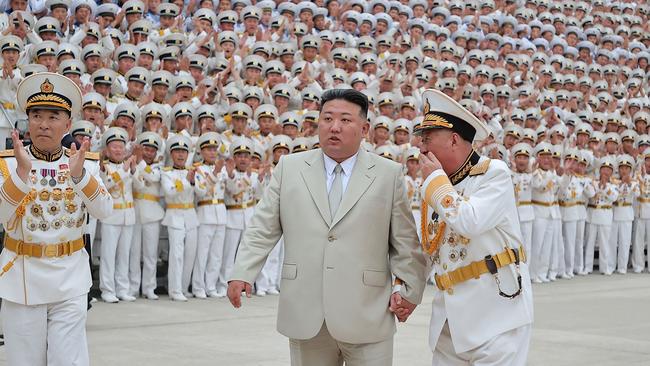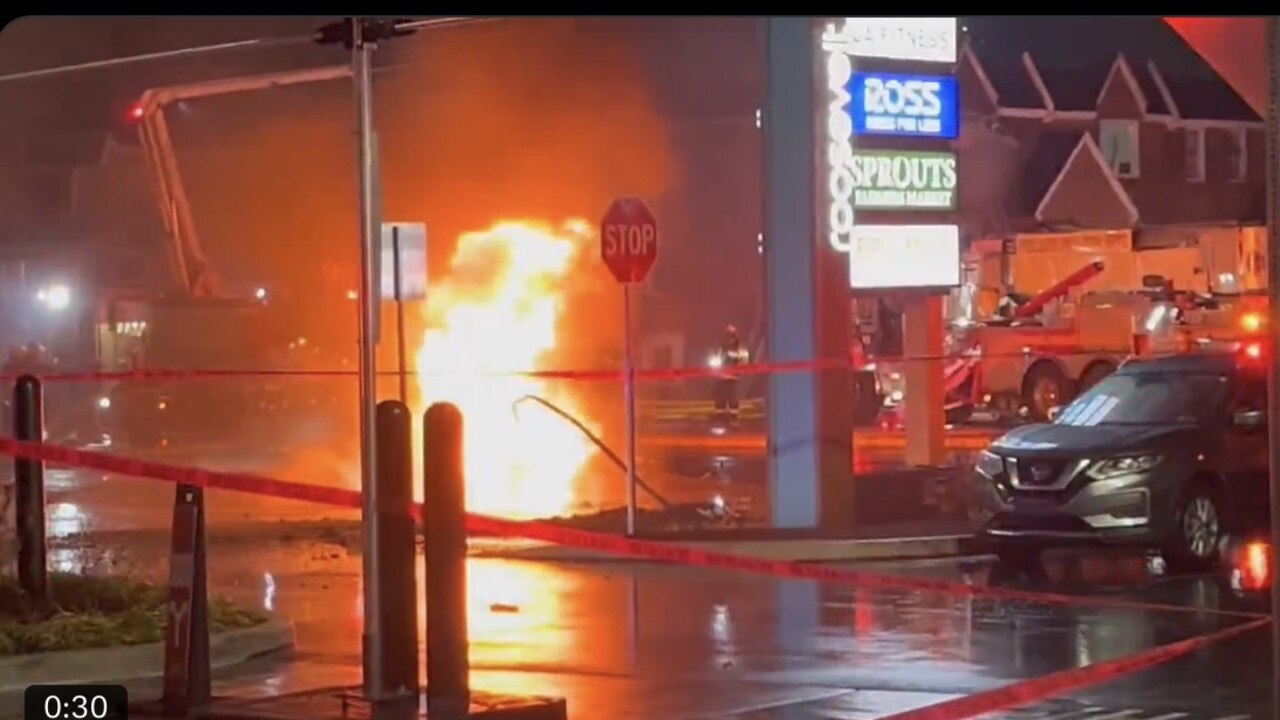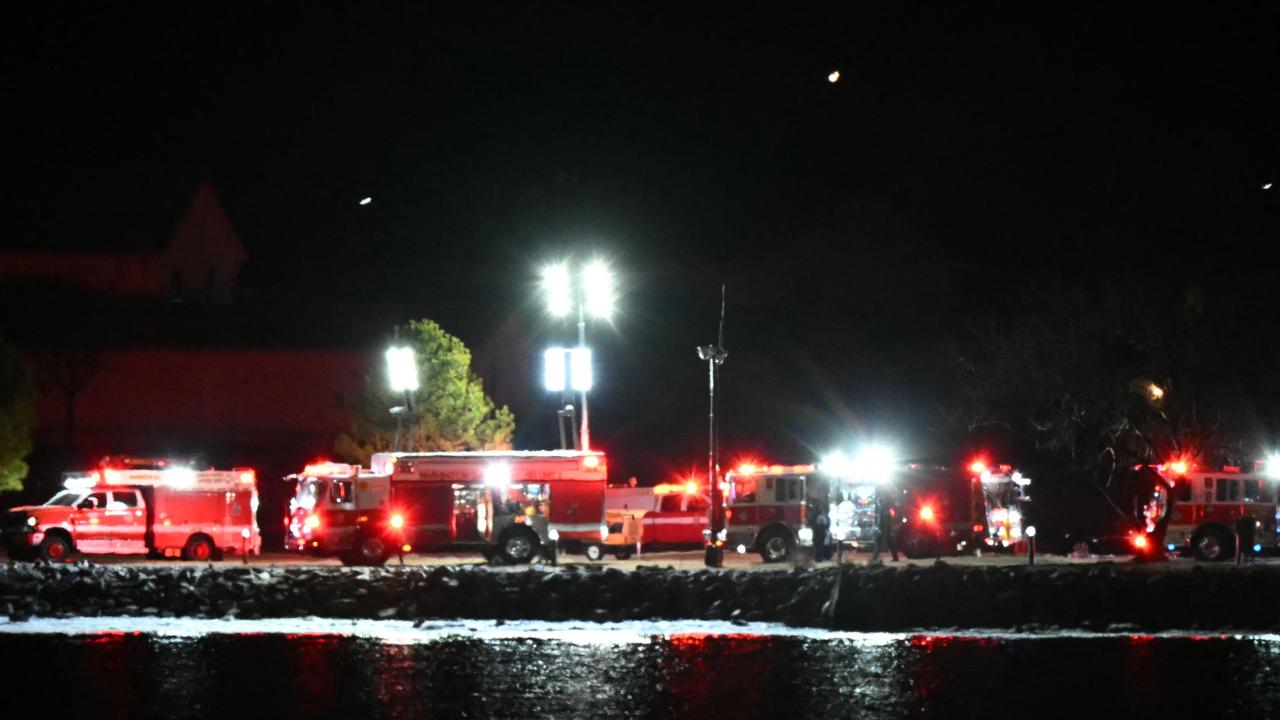Kim Jong-un to meet Vladimir Putin at arms deal summit
North Korean leader Kim Jong-un expects to meet Vladimir Putin in Russia to discuss providing arms to Moscow for its war in Ukraine, the US says.

North Korean leader Kim Jong-un expects to meet Vladimir Putin in Russia to discuss providing arms to Moscow for its war in Ukraine, the US says.
The announcement comes after the White House last week warned that Russia was already in secret, active talks with North Korea to acquire a range of munitions for Moscow’s war.
“As we have warned publicly, arms negotiations between Russia and the DPRK are actively advancing,” National Security Council spokeswoman Adrienne Watson said, using an acronym for the North.
“We have information that Kim Jong-un expects these discussions to continue, to include leader-level diplomatic engagement in Russia.”
Kim, who rarely travels outside his country, is likely to head later this month to Vladivostok, on Russia’s Pacific coast not far from North Korea, to meet the Russian President, according to The New York Times. The paper said Kim could even travel to Moscow, but that was uncertain.
National Security Council spokesman John Kirby said last week that despite its denials, North Korea supplied infantry rockets and missiles to Russia last year for use by the privately controlled Wagner military group.
Russian Defence Minister Sergei Shoigu travelled to North Korea last month seeking to buy additional munitions for the war, Ms Watson said.
“We urge the DPRK to cease its arms negotiations with Russia and abide by the public commitments that Pyongyang has made to not provide or sell arms to Russia,” she said.
Last week at the UN, the US, Britain, South Korea and Japan said in a joint statement that any deal to increase bilateral co-operation between Russia and North Korea would violate Security Council resolutions forbidding arms deals with Pyongyang.
Any talks between Kim and Mr Putin would come as Ukraine carries out a highly scrutinised counteroffensive in the south and east of the country, which Mr Putin on Monday claimed was being unsuccessful. “It is not that it is stalling. It is a failure,” he said.
Mr Putin also said Moscow was just weeks away from supplying free grain to six African countries after scrapping a deal allowing Ukrainian food exports through the Black Sea.
His comments during a press conference with Turkish leader Recep Tayyip Erdogan in the Black Sea resort city of Sochi came hours after Russian forces pounded one of Ukraine’s key grain-exporting hubs overnight with a swarm of attack drones.
Mr Erdogan told Mr Putin that Turkey and the UN had prepared new proposals aimed at addressing Russia’s problems with the deal, adding he hoped to reach a workable solution “soon”.
But Mr Putin reiterated that Russia would return to the landmark accord only when its demands were met and instead gave details of the plan for shipments to Africa.
“Deliveries will begin in the next couple of weeks,” he said.
The UN and Turkey-brokered grain deal, which aimed to ensure safe navigation for civilian ships through the Black Sea, collapsed after Russia pulled out in July.
Tensions have built since, with Russia mounting attacks on Ukrainian export hubs and Kyiv’s forces targeting Moscow’s naval ports and warships.
Senior Ukrainian presidential adviser Mykhailo Podolyak dismissed the gambit. “Today we have received yet another confirmation that any ‘negotiations’ with Putin are sham and pointless,” Mr Podolyak wrote on social media.
“He clearly lives in his own reality, where ‘everyone is to blame but him’.”
In Sochi, Mr Erdogan said there was no alternative to the original grain deal, and that Ankara was working with the UN on addressing complaints levied by Russia, which claimed its fertiliser exports were being hampered by Western sanctions.
“We have prepared a new proposal package in consultation with the UN. I believe that it is possible to get results,” Mr Erdogan said.
Since the deal collapsed, Moscow has repeatedly attacked Ukrainian ports in what Kyiv says is a cynical attempt to damage its exports and undermine global food security.
AFP


